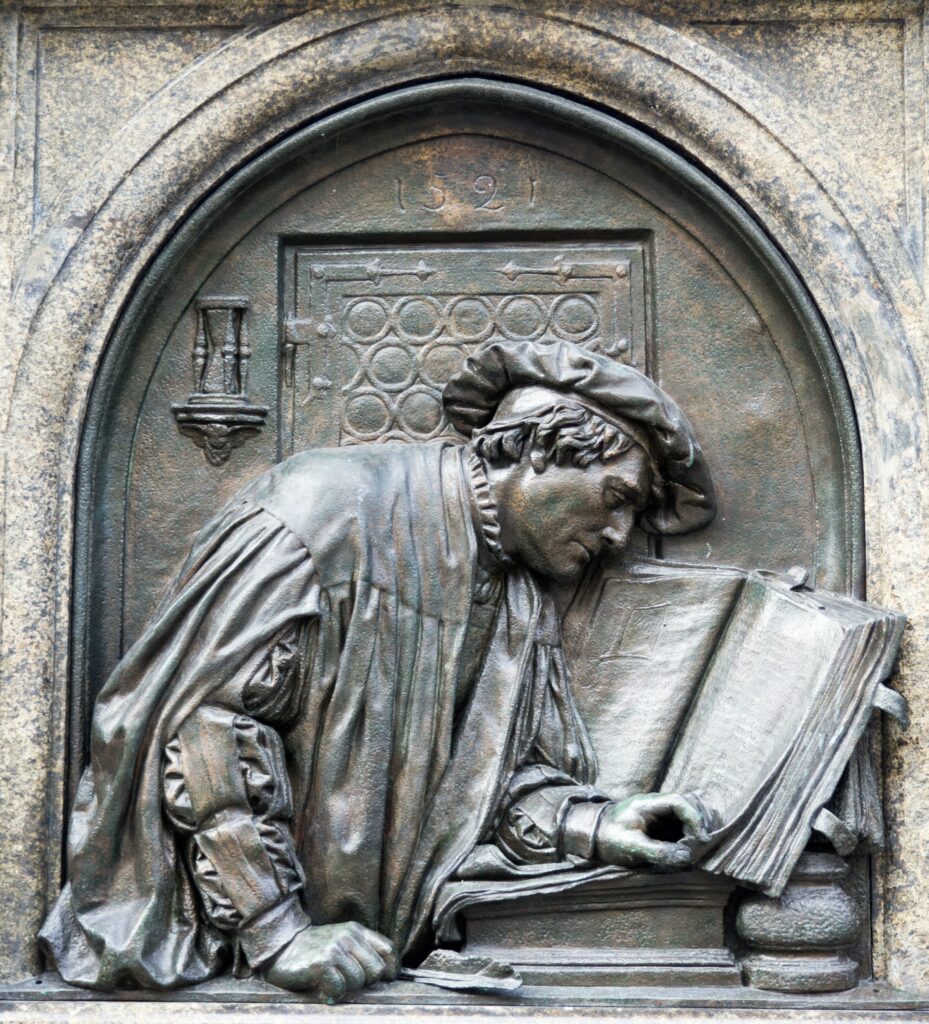
But corruption brings weakness, and political leaders—kings, dukes, electors—see an opportunity to gain more independence from Rome. Whereas in earlier days Henry IV, the Holy Roman Emperor, had knelt for 3 days in the snow seeking the forgiveness of Pope Gregory VII at Canossa, now a mere elector, Friedrich the Wise, will grant the heretic Luther sanctuary in his Wartburg Castle. Whereas Huss and Savonarola died early and painful deaths, Luther will die a natural death at the ripe old age of 62.
The Renaissance will bring a love of learning that begins to spread beyond the wealthy, and literacy rates will begin to rise. Scholars will begin to write in languages the masses can read. Soon more and more people are realizing that the Church and its own Bible are not saying the same things.
Can the Church be reformed?
There have been reforms before, a notable one under Gregory VII and at points along the way with church councils, most recently at Constance in Germany, after the embarrassment and disaster of the “Babylonian Captivity of the Papacy” in Avignon, France. But reforms have made mostly surface changes, and temporary ones at that. Now the corruption runs too deep, the money is too great, and the power structures are too deeply entrenched.
If change will come, it will shake the world itself and bring a new beginning.
And it will come. It will upend the ecclesiastical world by bringing to the forefront 3 significant ideas:
- The authority of Scripture rather than the church
- The central importance of faith rather than mechanical works
- Direct access to God for the person in the pew
And when Reformation comes, it will come because, in the providence of God, it is spurred on by two divinely orchestrated developments:
- The renaissance of interest in classical ideas and languages, which will lead, among other things, to the rediscovery of the Greek New Testament; and
- The printing press, which will explode the spread of these ideas
And out of all this ferment will spring a renewed understanding of the gospel:
- that we are indeed sinful, and that no church can forgive our sin;
- that God himself, in the person of Christ, has completely paid the penalty for our sin through his death on the cross, and has removed his own wrath against us;
- that faith, not works, appropriates Christ’s work to us as individuals and makes us the very sons and daughters of God;
- and that, wonder of wonders, the righteousness of Christ himself is given to us, freely and abundantly, so that now God sees his believing children through Christ-colored glasses.
The Church tried Law, and it only led to lawlessness. The Reformation reintroduces the masses to Grace, God’s grace, which is truly greater than all our sin.
Interestingly, the discovery of the New World, by Columbus, in 1492 will providentially provide a place for a few Protestants to seek greater freedom of worship—and everyone reading this today has benefited from that.
All of this is one part, a significant part, of the story God is telling. He won’t let his images languish in ignorance and sin. He will rescue them. Further, he will not let you languish either. He will pursue you; he will break down barriers between you and him; he will draw you to himself.
And then he will make you part of the story he’s telling, till all is ready and done.
That’s who he is.
Photo by Wim van ‘t Einde on Unsplash

Leave a reply. Keep it clean.